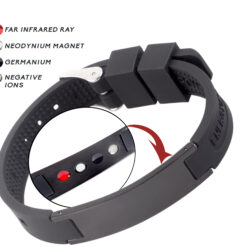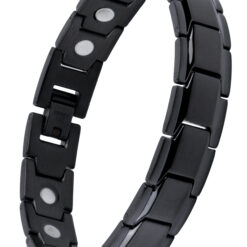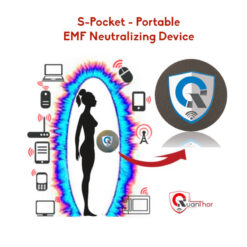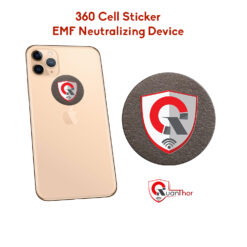Blog
Does WiFi Radiation Affect Sleep?
Do you have a WiFi router at home? If so, are you aware that WiFi radiation affects sleep in a deteriorating way? Have you noticed any changes in your sleep cycle when using WiFi? If yes, you are one of the four billion people in the world who suffer long-term WiFi radiation exposure. As per statistics, as of March 2020, 57% of the world population are WiFi users.
As we all know, WiFi is a wireless technology invented and first released in the market in 1997. It was created to allow troops to communicate on the battlefield. Later on, it was commercially used inside homes, businesses, social networking, and internet access. However, there are many clear indications of how WiFi radiation affects sleep and your overall health.
What Is WiFi Radiation?
WiFi radiation refers to radiation caused by invisible electromagnetic field waves (EMFs) that Wifi devices like routers use to send information back and forth in the air. This is similar to radiation or heat coming from a microwave oven.
It is of two types: the low-level or non-ionizing and the high-level radiation.
WiFi routers and all other appliances like computers, cellphones, smart television, and Bluetooth devices that are connected to WiFI belong to low-level radiation. Meanwhile, atomic blast, ultraviolet rays, X-rays, and gamma rays are dangerous examples of high-level radiation.
How Safe Is to Use WiFi?
According to a study, WiFi radiation needs to be very high to cause danger to a person. Radiation of 10 Gy or higher is lethal within hours of exposure. That said, a 4-5Gy can take around 60 days to take effect. Any dose, big or small, is said to carry a risk of cancer and other diseases.
WiFi devices, like routers, operate on the traditional 2.4 GHz band. It reaches up to 150 feet indoors and 300 feet outdoors. WiFi signals can pass through walls and other obstacles, but in theory, the amount of radiation is considered harmless. If you put a distance between yourself and the router, the lesser the radiation your body receives.
Check our Products on Sale!
However, many experiments contradict the theory that WiFi radiation is not harmful. One study notes that ‘long-term exposure to 2.4 GHz RF may cause adverse effects to your health’. Other studies show that the way WiFi radiation affects sleep and your wellbeing can lead to a number of other exposure symptoms. Such symptoms include:
- Fatigue,
- Irritability,
- Headaches, and
- Digestive disorders.
Reviews show that wireless electromagnetic radiation does not damage the DNA of human cells. Other studies, however, report that EMF exposures not only cause DNA damage but also oxidative stress. More often than not, scientific studies indicate how severely WiFi radiation affects sleep and your entire health.
Here are what other studies on the effects of WiFi radiation in humans indicate:
- Bioeffects take place even at very low levels of exposure to electromagnetic fields and radiofrequency radiation.
- Electromagnetic fields are similar to those used in power lines and can have a biological effect on human cells. It contributes to the intricate cellular process that may lead to cancer.
There is also an impact on the brain and the degeneration of the nervous system.
How WiFi Radiation Affects Sleep?
Once again, there are contradicting studies. According to some studies, it can cause extreme sleep loss (insomnia) and a syndrome called electro-hypersensitivity. Apart from it, exposure to EMFs also causes depression, mood disturbances, hypertension, and low immunity which also interferes with sleep.
Biologists Dr. Russell John Kort and Joanette Biebesheimer pointed out the 10 dangers of WiFi on our health, with insomnia being the first on their list. On the contrary, there are many indications that electromagnetic fields influence brain activity during sleep but does not affect the quality of sleep.
The environment in which we sleep is an external factor that affects the quantity and quality of your sleep. It is a must, therefore, to prioritize your sleeping environment, especially if there are children at home. Even if there are no consistent studies that link Wifi radiation to sleep issues, it is better to be cautious.
There is a lot of information that says that there is danger out there, and the most you can do is to lessen worry. It is good to believe that it is safe to sleep next to a wireless router, but you must never place a wireless router behind a bedroom wall. And since WiFi is one of the main sources of EMFs in your home, you need to limit your exposure to WiFi router radiation to have a good sleep.
Tips to Help You Stay Protected
Here are some tips you can follow to shield yourself from threatening EMF exposure from WiFi devices.
- Educate your kids and other members of the family about EMFs
- Switch WiFi off at night and disable all wireless function on all devices
- Swapping wireless for wired
- Keep your distance
Of course, there is no guarantee that if you minimize your exposure to EMFs, you won’t suffer from sleep problems. Even science hasn’t yet confirmed a safe level of Wifi radiation. However, reducing the exposure time by eight hours during sleep is worth it.









